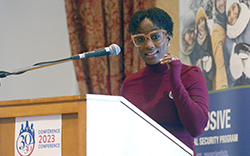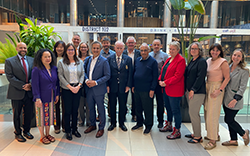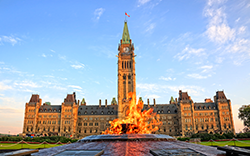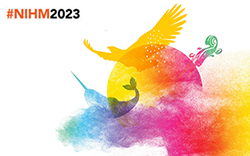President’s message
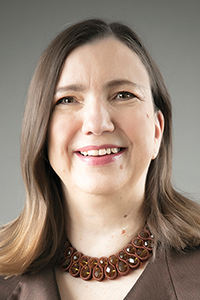
Collaboration is inherently infused in Engineers Canada’s work and 2023 underscored the need and value of strong partnerships. In the past year, we witnessed new technological advances, intensified indicators of climate change, and several regulatory changes. With such transformations prevalent in our society and profession, consistency of engineering practices and processes across Canada is imperative. Through this report you will explore the breadth and depth of the activities that took place in the past year, but I want to highlight a few ways we have harnessed collaboration to pave the way forward in several notable areas.
In the pursuit of strengthened harmonization and collaboration among engineering regulators, we held individual consultations with regulators to explore opportunities and roadblocks on this front. We heard great enthusiasm for regulatory collaboration and harmonization across the country. This resulted in the development of a Statement of Collaboration, a document solidifying regulators’ commitment to long-term partnership. This statement is expected to be signed by regulators in 2024.
Meanwhile, the Futures of Engineering Accreditation (FEA) project embraced a rich, collaborative approach to examine the current accreditation system, understand how it’s serving contemporary needs, and consider how it can chart a new path for the future of our profession. 2023 milestones were marked by two significant engagement events that brought together members of the engineering community, Engineers Canada, Engineering Deans Canada, and engineering regulators. Continuing to involve new and experienced voices in the project is proving invaluable to understanding potential refinements for the Canadian engineering accreditation system.
Together, we made a pivotal leap within our 30 by 30 initiative to increase the representation of women in engineering. In addition to three virtual sessions, we hosted the annual 30 by 30 Conference with virtual lead-up sessions to our first in-person conference in Halifax – a gathering of 30 by 30 Champions and leaders within the engineering profession who are actively working to address gender equity. The conference brought together 140 individuals to learn and share insights about equity, diversity, and inclusion in engineering workplaces.
Drawing on a multitude of creative views and concepts, we launched the Building Tomorrows campaign – a national campaign that aims to inspire Canadians to think about engineers in new ways. The campaign yielded over 235 million impressions across television and digital platforms. With such extensive exposure achieved, I am eager to observe the enduring impact of this campaign as it moves into 2024.
In 2023, we were confronted with the undeniable truth that a thriving engineering community hinges on collaboration. There is a special strength in merging our ideas, skills, knowledge, and perspectives. It boosts innovation, creativity, and helps us address challenges in our profession. Let us continue to champion and foster collaboration as we navigate the evolving landscape of our profession.
Strategic priority 1.1: Investigate and validate the purpose and scope of accreditation

Engineers Canada is undertaking a fundamental review of the accreditation system in a project called the Futures of Engineering Accreditation (FEA). We are investigating best practices in engineering education, working with regulators and stakeholders to understand if there is a desire to adopt a new, national academic requirement for licensure, and if appropriate, update the purpose of accreditation.
In 2023, we focused on developing concepts for the purpose of accreditation and a national academic requirement for licensure. Various options were explored through virtual simulations that engaged over 80 individuals from the engineering community. Results from the simulations and previously gathered project insights, such as the original benchmarking reports, were used to draft preliminary concepts for the purpose of accreditation and a national academic requirement for licensure.
In a series of in-person consultations from September to November, the concepts were shared with regulators across Canada, Engineering Deans Canada (EDC), the Canadian Engineering Accreditation Board (CEAB), and the Canadian Engineering Qualifications Board (CEQB). The goals of the consultations were to gather specific and across-the-board feedback on the concepts, reach an understanding of the opportunities and challenges they present, and end the year with a solid grasp of the big questions surrounding changes to the current system. More information on this strategic priority is available on engineeringfutures.ca.
In 2024, we will work on a summary of the takeaways from the most recent engagements with regulators, the EDC, and the CEAB and CEQB, along with the steps the project will take in 2024 leading to the final Path Forward Report. The implementation of this work will be carried forward in the 2025-2029 strategic plan.
Strategic priority 1.2: Strengthen collaboration and harmonization

Part of our mandate is to act as a conduit between the engineering regulators. In order to secure long-term commitment on regulatory collaboration and harmonization, we are working with regulators to sign a statement of collaboration to formalize their commitment to harmonize in regulatory areas. We are also seeking to identify potential regulatory areas for Pan-Canadian harmonization.
In 2023, we held individual consultations with regulators to assess if there was an appetite for regulatory harmonization across the country. Not only did we confirm their willingness to work together, we also identified potential regulatory areas of focus for the next few years. In addition, we consulted presidents and chief executive officers in the fall to confirm the high-level content of the Statement of Collaboration. Finally, we wrote a draft Statement of Collaboration that we sent out for consultations with regulators.
In 2024, we are expecting that the Statement of Collaboration will be signed by Members. We are also starting to work on the focussed areas identified by regulators. Finally, as part of the 2025-2029 strategic plan, we will formalize a mechanism to select future areas of regulatory harmonization.
Strategic priority 1.3: Support regulation of emerging areas

The number of engineering disciplines continues to grow and evolve. Engineers Canada supports regulators by providing information to them on non-traditional, contemporary, and overlapping areas of engineering practice. This year, we published a new Regulatory research paper on Energy Engineering. We also promoted the role of engineers in emerging areas through new and existing National Position Statements and advocacy to the federal government.
In 2024, we will publish a second research paper on machine learning and data science. We will also release a new National Position Statement on the role of engineers in non-traditional areas of engineering practice.
Strategic priority 2.1: Accelerate 30 by 30
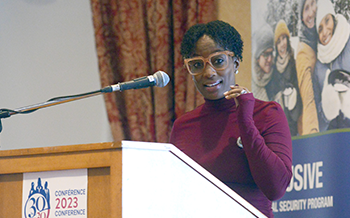
For many years, Engineers Canada has been at the forefront of efforts to increase women’s representation and retention in engineering. In 2014, Engineers Canada launched the national 30 by 30 goal: to see 30 per cent of newly licensed engineers be women by 2030. Over the past five years, the number of women enrolled in and graduating from post-secondary engineering programs continues to grow. The number of newly licensed engineers who are women has also grown over the last five years, as has the number of women in the engineering profession. Today, women comprise 15 per cent of the engineering profession, compared to 13.5 per cent five years ago, and 19.2 per cent of newly licensed engineers. More data is available in our annual National Membership Report.
To raise the visibility of this strategic work, Engineers Canada presented to the Women in Engineering Summit (WES) and to Concordia University’s Women in Engineering – Career Launch Experience (WIE-CLE). We also moderated a panel on “Welcoming Women to the Profession” at the virtual Canadian Consulting Engineer’s ADVANCE Women in Engineering summit as well as on “Engineering for life” at the World Federation of Engineering Organizations (WFEO) meetings.
In May 2023, Engineers Canada led three virtual events and an in-person national summit in Halifax to foster national discussions on equity, diversity, and inclusion (EDI) in the engineering profession. We established an Employer Task Force to develop an engineering employer champion program. We continued to publish our monthly 30 by 30 newsletter and are continuing to work on the development of our upcoming national research strategy. We also published an updated Managing Transitions Guide to support the creation of safe, open, and inclusive environments to ensure parental leaves are positive and enjoyable experiences.
In 2024, we will be holding one virtual event and one in-person event with the theme, “Turning Knowledge into Action for Gender Equity in Engineering”. We will also continue distributing information across the country, working on the employer champion program, and will publish the national research strategy and the Pathways to Engineering and Women in Leadership reports.
Strategic priority 2.2: Reinforce trust and the value of licensure

In 2023, Engineers Canada launched a new campaign to inspire Canadians to think about engineers in new ways. Featuring new television ads, microsite and digital content, the "Building Tomorrows" campaign shows how engineers create solutions that make a difference in our world.
Conceived in collaboration with Canada’s engineering regulators, the campaign uses building blocks—a familiar and well-understood tool—as a means to call on people to think about engineers as builders that are making the world a better place for us all. Using a series of digitally rendered constructions, the television spot illustrates how engineers use creativity and innovation to develop solutions to everyday problems like energy efficiency and smart growth, as well as drive extraordinary advances in medical treatments and resilient infrastructure. It also challenged the stereotypes of who is an engineer, ensuring diverse representation was prioritized throughout the campaign.
The campaign launched in April with extensive placement on broadcast television, being seen alongside some of the top programs on both English and French language television. This was supported with digital promotion across social media, YouTube, and display ads on leading news and current affairs websites.
Overall, the campaign exceeded our expectations, with over 235 million impressions on television, and on digital. This is 50 per cent more impressions than expected and over four times the estimated clicks. Visits to the buildingtomorrows.ca website exceeded expectations four-fold.
We go into 2024 with confidence that the Building Tomorrows concept is resonating with Canadians and are exploring opportunities to deepen audience engagement.
The marketing campaign was supported by developing messaging resources that Engineers Canada and regulators can use to communicate the value of engineering licensure consistently across the country.
Pathway to Engineering
In addition to the marketing campaign, 2023 saw the development of the Pathway to Engineering portal. Pathway to Engineering is a resource to connect engineering students and graduates to knowledge about the licensure process and create a community of professionals who can support them on their journey. The site provides information, events, and connections to help engineering graduates at every step of the licensure process and beyond. The site launched in the first quarter of 2024.
Strategic priority 3.1: Uphold our commitment to excellence

In 2023, Engineers Canada focused efforts on sustaining our continual improvement culture. We took steps to streamline annual planning processes and prepared to submit our application for certification by Excellence Canada.
In 2024, we expect to submit our application, participate in an external verification process, and hope to receive Excellence Canada Platinum Certification. Achievement of this certification provides tangible external evidence that we continue to be a high performing organization, provides an opportunity to celebrate our successes, and confirms our alignment to current best practices over three or more cycles.
Core purpose 1: Accreditation

Through the work of the Canadian Engineering Accreditation Board (CEAB), Engineers Canada accredits Canadian undergraduate engineering programs on behalf of regulators. As of the date of publication, there are 307 accredited engineering programs at 44 Higher Education Institutions (HEIs) across Canada. In June, the CEAB made accreditation decisions for 78 programs at 24 institutions across Canada. This concluded the 2022-2023 accreditation visit cycle, the largest in the CEAB’s history. Between Fall 2023 and Spring 2024, accreditation visiting teams will visit 30 programs at 13 institutions.
In 2023, we wrapped up development of Tandem, our new cloud-based accreditation data management system, and started to prepare HEIs hosting a visit in the 2024-2025 to make their accreditation submission via the new tool. Upholding our commitment to making data-informed improvements to the accreditation policies and procedures, the 2023 Accountability in Accreditation report was published with a series of recommendations. At the same time, recommendations from the 2022 report have been progressed, including the development of role descriptions for accreditation visiting team members and CEAB members. We also conducted a comparative analysis between the CEAB Graduate Attributes and the International Engineering Alliance’s Graduate Attributes & Professional Competencies Framework, which will help us develop a roadmap to ensure that our accreditation system remains substantially equivalent with other Washington Accord signatories.
In 2024, we expect to receive requests to visit 95 programs from 21 HEIs in 2024-2025. We will continue to implement Tandem by offering training and support to HEIs and volunteers who will use the system for the first time. We will continue to monitor feedback and identify future enhancements to the tool based on what we hear from end users. Finally, the CEAB will issue their final report on possible interventions that can be made in the accreditation system to support the 30 by 30 strategic priority.
Core purpose 2: Regulator relationships

By convening regulators and sharing information on policies, procedures, and practices, we foster regulatory collaboration and harmonization across Canada. In 2023, we held meetings among CEOs as well as regulator staff working in admissions, practice of engineering, discipline and enforcement, communications, finance and IT. Together, they also work on tools facilitating mobility across Canada such as the National Membership Database, Competency-Based Assessment, and others.
In November, Engineers Canada and the engineering regulators sent a letter to Alberta Premier Danielle Smith arguing against changing their provincial legislation to allow the use of the term “engineer” by unlicensed individuals. Restricting the use of the term engineer to license holders protects public trust and safety as it makes it clear who is competent to practice engineering and gives a recourse to the public should an engineering failure occur.
Core purpose 3: Services and tools
Canadian Engineering Qualifications Board
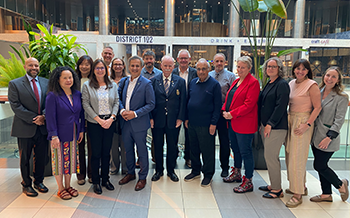
Under the direction of the Engineers Canada Board and in consultation with the regulators, the Canadian Engineering Qualifications Board (CEQB), develops and maintains papers, guidelines, and syllabi that foster consistent engineering practice and qualifications assessment across Canada. These documents are created and maintained to benefit regulators’ staff, license holders, and applicants.
In 2023, the CEQB developed, updated, and released the following documents:
New documents
- New public guideline for engineers and engineering firms on the topic of Indigenous consultation and engagement
- New feasibility study on alternative methods of academic assessment for non-CEAB candidates
Revised documents
- Public guideline on good character
- Engineers Canada paper on software engineering
- Complementary studies syllabus
- Chemical engineering syllabus
- Electrical engineering syllabus
- Mechanical engineering syllabus
- Mechatronics engineering syllabus
Looking ahead, in 2024 the CEQB will be working on:
New documents
- Regulator guideline on duty to report / wrongdoing
- Regulator guideline on fitness to practice
- Public guideline on the ethical use of groundbreaking technologies
- Engineers Canada paper on emerging disciplines
Revised documents
- Public guideline on conflict of interest
- Public guideline on the code of ethics
- Regulators guideline on principles for character investigations
- Public guideline on assuming responsibility for the work of engineers-in-training
- Public guideline on the practice of engineering
- Public guideline on the academic assessment of non-CEAB applicants
- Building engineering syllabus
- Petroleum engineering syllabus
- Mining engineering syllabus
- Computer engineering syllabus
- Naval engineering syllabus
In addition to the above, the CEQB has been making ongoing strategic improvements in three main areas: alignment with Engineers Canada Board policies and guidance, regulatory knowledge and relationships, and promotion of public CEQB products.
Core purpose 4: National programs

Engineers Canada offers national programs that provide licensed engineers, geoscientists, and their families with exclusive rates and features across a wide range of insurance plans and other services.
Engineers Canada offers three types of services:
- Affinity, insurance, and other benefits for engineers and geoscientists and their families
- Professional liability insurance for engineers and their practice
- Corporate liability insurance plans and a national employee group benefits program for engineering regulators’ organizations
In 2023, we continued a massive effort to modernize our approach to be more client-focused, increase our visibility across the country, and ensure our long-term sustainability, balancing targeting services for new generations while continuing to serve a broad and aging demographic. We also looked at our partners’ website presence and are working on several improvements. A brief description and annual achievements for each service we offer follows.
Affinity, insurance, and other benefits for engineers and geoscientists and their families
This suite of benefits is targeted toward engineers and geoscientists and include:
Home and Auto Insurance. In 2023, Engineers Canada entered into an Agreement with the Professional Engineers of Ontario in Q1 2023. We also worked closely with TD Insurance to maintain a rate capping initiative for over 52,000 policyholders. This retention initiative also had a positive impact on over 4,800 policyholders.
Term Life and Accident Insurance. In the first quarter of 2023, we launched a special 75th Anniversary campaign with Manulife, which provided members with an exclusive 75 percent premium reduction on any new and additional term life coverage. To mark this milestone event, several member-facing social media, digital and print marketing, and billing renewal campaigns were launched that included the 75th Anniversary messaging and information on how members could apply for coverage. A premium credit initiative was implemented for those participants already enrolled in the Engineers Canada sponsored Term Life program.
Rail Travel Discounts. This year, Engineers Canada partnered with Via Rail to provide engineers and geoscientists with a discount on fares for themselves and up to three guests.
Health and Dental Insurance, which encompasses three distinct programs: the Prime Health and Dental program, designed for active members; the Professional Retiree Plan, designed for retirees, and the National Employee Group Benefits Program (NEGBP), designed for regulators’ operations. In 2023, we undertook a benchmarking exercise of all health and dental programs to assess the competitiveness and client experience of these programs. Work on the NEGBP was completed in 2023 while the evaluation and modernization efforts for the other two programs are expected to be completed in 2025.
Financial Security Program. The program provides engineers and geoscientists with access to Registered Retirement Savings Plans (RRSPs), Non-Registered Savings Plan (NRSP), Tax-Free Savings Accounts (TFSAs), Registered Retirement Income Funds (RRIFs), and Life Income Funds (LIFs). This year, a new Group Savings and Retirement platform, My Canada Life at Work, was launched with Canada Life, allowing plan members to set up online contributions, change investment instructions, and access tools and resources to improve their financial well-being. In May, a Health and Wealth consultant service was launched for members so they can access complimentary personalized service and guidance through all stages of their financial journey. Finally, we started a two-phase website modernization project to improve client experience, which is expected to be completed in 2024.
We also offer Disability Income and Critical illness Insurance plans as well as pet insurance. Engineers and geoscientist community members can also benefit from discounts on car rental (with Avis and Budget), and shipping.
Professional liability insurance for engineers and their practice
We offer primary and secondary professional liability insurance programs. In 2023, we conducted a marketing exercise for our Secondary Professional Liability insurance program, which was comprised of a Request for Information (RFI) to 11 insurers and a more formal Request for Proposal (RFP) from five insurers. The results of the marketing exercise were positive for the engineering regulators in terms of stable pricing for members.
Corporate liability insurance and national employee program for engineering regulators’ organizations
These corporate liability plans are offered to engineering regulators to protect their organizations against the risk of lawsuits. We also manage a national employee group benefits program on their behalf.
In 2023, we conducted a marketing exercise for our directors and officers / errors and omissions, cyber security, and commercial crime program. We also completed a benchmarking and plan modernization exercise for our national employee group benefit program. We entered into an interim agreement with a new broker of record for all our Corporate Professional Liability programs and will be conducting a formal RFP for broker services on these programs in 2024.
Core purpose 5: Advocating to the federal government

On behalf of provincial and territorial regulators, Engineers Canada speaks with the federal government on a variety of topics impacting the engineering profession. We advocate to the federal government through government submissions, issue statements, national position statements, and other opportunities such as testifying before parliamentary and senate committees and participating in government consultations.
National Position Statements
National Position Statements highlight the regulators’ priorities to the government. They are the official position of the engineering profession on a variety of topics. In 2023, Engineers Canada developed and updated the following documents:
- New National Position Statements on:
- Licensing requirements for engineering positions in the federal public service
- Ventilation Systems and Building Management in Reducing Airborne Contaminants
- Federal Regulations of Small Fishing Vessel Design
- Role of Engineers in Getting Canada to Net-Zero Emissions
- Professional Practice in Biomedical Engineering
- Revised National Position Statements on:
In 2024, Engineers Canada will develop new National Position Statements on topics such as national building codes, accessible environments, artificial intelligence, and professional practice.
Government submissions
In 2023, Engineers Canada submitted the following government submissions:
- Engineers Canada comments to the Standing Committee on Finance regarding Pre-Budget Consultations in Advance of the 2024 Budget
- Engineers Canada’s comments regarding the Insurance Auditing and Assurance Standards Board’s Proposed ISSA 5000, General Requirements for Sustainability Assurance Engagements
- Engineers Canada’s comments on the Conservative Party of Canada’s proposed “Blue Seal” National Professional Testing Standard proposal
- Engineers Canada’s comments to Premier Danielle Smith regarding Bill 7
- Engineers Canada’s submission to the House of Commons Standing Committee on Finance in Advance of the 2024 Budget
- Engineers Canada's comments to Natural Resources Canada regarding proposed amendments to Bill C-49
- Engineers Canada’s submission to the House of Commons Standing Committee on Public Safety and National Security regarding Bill C-26
- Federal Budget 2023: A Made-in-Canada Plan: Strong Middle Class, Affordable Economy, Healthy Future. Highlights and Analysis
- Engineers Canada comments to the Standing Committee on Finance regarding Pre-Budget Consultations in Advance of the 2023 Budget
Meetings
Throughout the year, Engineers Canada also met with elected and government officials to bring forward topics of interest to the regulators. For example, Engineers Canada met with the Treasury Board of Canada Secretariat about the licensing of engineers within the federal public service and with Marine Safety and Security, Transport Canada regarding federal regulations of small fishing vessel design. Additionally, Engineers Canada is a member of the Adaptation Skills Working Group led by Natural Resources Canada under Canada’s Climate Change Adaptation Platform.
Engineers Canada was a member of Canada's official delegation to the United Nations’ 67th session of the Commission on the Status of Women (UNCSW67) led by Women and Gender Equality (WAGE) Canada and the federal Minister for WAGE and Youth. In addition, Engineers Canada and three other Canadian delegates to the UNCSW67 were interviewed by the Royal Canadian Mint for the Mint’s videos for the launch of the Elsie MacGill coin. Elsie MacGill was the first practising Canadian woman engineer and a passionate advocate for human rights.
Core purpose 6: Researching, monitoring and advising

Engineers Canada proactively conducts regulatory research on upcoming national and international topics to help regulators adapt to an everchanging landscape. This year, we published an article detailing how compassion can be integral to professional regulation.
Core purpose 7: International mobility

On behalf of regulators, Engineers Canada is a member of the International Engineering Alliance (IEA) and the World Federation of Engineering Organizations (WFEO). We are also signatories to bilateral and multilateral international recognition agreements. In 2023, we conducted a comparative analysis between Canada’s engineering competency frameworks and that of the IEA’s Graduate Attributes & Professional Competencies Framework which will help us develop a roadmap to ensure that our competency frameworks remain substantially equivalent with other IEA agreement members. This gap analysis was presented to the IEA at their annual meeting held in Taichung, Taiwan in June.
Engineers Canada maintains databases and information to help engineers practice in Canada and abroad, such as the Engineers Canada Mobility Register, which enables eligible engineers practising in Canada to use the APEC Engineer and IntPE (Canada) designation when seeking licensure internationally.
Engineers Canada maintains the International Institutions and Degrees Database (IIDD) to assist engineering regulators in the assessment of academic qualifications of international engineering graduates. The IIDD provides up-to-date information about engineering programs from countries around the world.
We also provide information to newcomers on the Canadian engineering licensure process through the EngineerHere.ca website and answer their questions on the Canadian regulatory system. To support the global audience of EngineerHere.ca, information about the licensure process is provided in a variety of languages: Arabic, Bengali, Chinese (Traditional), Chinese (Simplified), English, Farsi, French, Hindi, Spanish, Tagalog, and Urdu.
Core Purpose 8: Promotion and outreach

Engineers Canada’s work in promotion and outreach focuses on fostering recognition of the value of the engineering profession and sparking interest in the next generation of engineers.
For students from Kindergarten to grade 12, Engineers Canada promotes the engineering profession to the younger generation to raise awareness about engineering as a career. We highlight the profession through our Explore Engineering website and through three national programs: the Future City Experience for students in grades 6 to 8, the National Engineering Crest Program, and the Let’s Talk Careers competition for high school students. Through these programs, we directly support youth, educators, parents, and STEM NGOs reaching over 15,000 students in Kindergarten to grade 12 annually.
We also established the K to 12 Collective Impact Initiative to foster shared leadership and create multiple avenues for engagement across relevant groups. This initiative has five phases and has recently completed phases one and two, assessing readiness and initiating action, and is moving into phase three, organizing for impact. Core partners for this initiative include: Engineers of Tomorrow, ONWiE, Let's Talk Science, BGC Canada (formerly Boys and Girls Club of Canada), Halton District School Board, and Spin Master.
As part of our work around career awareness, we partnered with Let’s Talk Science, Skills/Compétences Canada, and ChatterHigh on the Let’s Talk Careers Competition, an opportunity for high school students to explore careers, including engineering, through interactive competitions held twice annually which saw 9,051 participants from 351 schools in 147 districts visit Engineers Canada’s web pages 65,471 times from Nov 7, 2022 – July 31, 2023.
The Canadian Federation of Engineering Students (CFES) is one of our strategic partners. We participate in four of the CFES’ key meetings: the Canadian Engineering Leadership Conference (CELC); the Conference on Diversity in Engineering (CDE); the Conference on Sustainability in Engineering (CSE); and the Canadian Engineering Competition (CEC).
National Engineering Month
Canada has celebrated March as National Engineering Month (NEM) for three decades. In 2023, the NEM garnered more than 7.5 million impressions on social media and the national kick-off event saw more than 600 attendees from across the country. National Engineering Month is Canada’s largest celebration of engineering and celebrates the heart and soul of engineers—their passion, commitment, and action towards making the world a better place. Presented by Engineers Canada, National Engineering Month is guided by the theme, “There’s a place for you in engineering,” which celebrates the diversity of thought, opportunities, and people that make up the engineering profession and whose passion and commitment drive tangible efforts that improve our world. In some provinces, you’ll find geoscientists joining as part of National Engineering and Geoscience Month.
Engineers Canada Awards
The Engineers Canada Awards recognize and celebrate the achievements of engineers and engineering students who are advancing the engineering profession and improving the lives of Canadians and others around the world. Recipients in 2023 were:
- Janusz Koziński, PhD, FCAE, FEC, FEIC, FRSC, P.Eng. - Gold Medal Award
- Damineh Akhavan, MBA, FEC, P.Eng. - Meritorious Service Award for Professional Service Award
- Michael Halliwell, M.Eng., FEC, EP, P.Eng. - Meritorious Service Award for Community Service
- Peter Ostafichuk, PhD, FEC, P.Eng. - Medal for Distinction in Engineering Education
- Mona Shahwan El-Tahan, M.Eng., FEC, P.Eng. - Award for the Support of Women in the Engineering
- Annemarie Summers - Gold Medal Student Award
Learn more about our 2023 award recipients.
Engineers Canada Scholarships
Engineers Canada offers three scholarships, one for undergraduate students and two for graduate students. The recipients of the 2023 scholarships were:
Engineers Canada-TD Insurance Scholarships ($7,500)
Martina Riessner, P.Eng. Sean Decloux, M.Eng., P.Eng., PMP Wayne Qin, P.Eng.
Engineers Canada–Manulife Scholarships ($12,500)
Cameron Flude, P.Eng. BScE Taylor Martin, P.Eng. William Szu-Wei Chen, P. Eng.
Engineers Canada Leadership Scholarship ($4,000)
- Badr Abbas
- Reeda Awan
- Kasey Burgess
- Sarah Cushnie
- Maria George
- Annalise Gignac
- Mi Kadouri
- Luke McCarvill
Learn more about our 2023 scholarship recipients.
Fellows of Engineers Canada
In 2023, the following individuals received an Engineers Canada fellowship for their noteworthy service to the engineering profession through their work with either Engineers Canada or the provincial and territorial engineering regulators:
Engineers Canada
- John Langlois, FEC, (Hon)
Association of Professional Engineers and Geoscientists of Alberta (APEGA)
- Toks Adebayo, FEC, P.Geo.
- Anu Anuradha Ghosh, FEC. P.Eng.
- John Diiwu, FEC, P.Eng.
- Scott Friel, FEC, P.Eng.
- Sid Gautam, FEC, P.Eng.
- Tatiana Goulko, FEC, P.Eng.
- Michael Halliwell, FEC, P.Eng.
- David YF Ho, FEC, P.Eng.
- Douglas Ivey, FEC, P.Eng.
- Michael Lewchuk, FEC, P.Eng.
- William MacMillan, FEC, P.Eng.
- Greg Meyers, FEC, P.Eng.
- Nyssa Moore, FEC, P.Eng.
- Michael Oli, FEC, P.Eng.
- Matthew Oliver, FEC, P.Eng.
- Phil Rajotte, FEC, P.Eng.
- Mahendra Samaroo, FEC, P.Eng. P.GEOL.
- Tracey Stock, FEC, P.Eng.
- Kenneth B. Takeda, FEC, P.Eng.
- Kevin Willis, FEC, P.Eng.
- David Woodall, FEC, P.Eng.
Association of Professional Engineers and Geoscientists of Saskatchewan (APEGS)
- Rajeev Chadha, FEC, P.Eng.
- John W. Desjarlais, FEC, P.Eng.
- Andrea J. Fisher, FEC, P.Eng.
- Jeremy E. Gabel, FEC, P.Eng.
- Grant T. Gingara, FEC, P.Eng.
- Trodhie S. Irlandez, FEC, P.Eng.
- Mehrnoosh Janbakhsh, FEC, P.Eng.
- Brett A. LaRoche, FEC, P.Eng.
- Venkatesh Meda, FEC, P.Eng.
- Jafar Soltan Mohammadzadeh, FEC, P.Eng.
- Ian G. Sloman, FEC, P.Eng.
Engineers and Geoscientists British Columbia
- Edward Cheung, FEC, P.Eng.
- Joseph Dupuis, FEC, P.Eng.
- Hamid Ghanbari, FEC, P.Eng.
- Marcel Gingras, FEC, P.Eng.
- Charles John Jochems, FEC, P.Eng.
- Kwok-Wah (Toby) Lau, FEC, P.Eng.
- Arash Masbough, FEC, P.Eng.
- Peter Ostafichuk, FEC, P.Eng.
- Carol Park, FEC, P.Eng.
- Maciej Sobczyk, FEC, P.Eng.
- Todd Morgan Joseph Stewart, FEC, P.Eng.
Engineers and Geoscientists New Brunswick
- George Filliter, FEC (hon.), LLB, K.C.
- Michael Gorman, FEC, P.Eng.
- Carol MacQuarrie, FEC, P.Eng.
Engineers Geoscientists Manitoba
- William Boyce, FEC, (Hon)
- Ariel Brawerman, FEC, P.Eng.
- Jesse Crowder, FEC, P.Eng.
- Nishant Dhruve, FEC, (Hon), EIT
- Derek Dreger, FEC, P.Eng.
- Kaitlin Fritz, FEC, P.Eng.
- Ninel Gonzalez, FEC, P.Eng.
- Christopher Hewitt, FEC, P.Eng.
- Indra Kalinovich, FEC. P.Eng.
- Nusraat Masood, FEC, (Hon), EIT
- Joan McKinley, FEC, (Hon)
- Ian Smallwood, FEC, P.Eng.
- Timothy Starodub, FEC, P.Eng.
- Gordon Whiffen, FEC, P.Eng.
Engineers Nova Scotia
- Dr. John Newhook, FEC, P.Eng.
- Roxanne Tate, FEC, P.Eng.
- Philip Zinck, FEC, P.Eng.
Engineers PEI
- Nancy Chiasson, FEC, P.Eng.
- Adam Clark, FEC, P.Eng.
- Jody MacLeod, FEC, P.Eng.
- Colin McQuillan, P.Eng.
Engineers Yukon
- Christopher Dixon, FEC, P. Eng.
Northwest Territories and Nunavut Association of Professional Engineers and Geoscientists (NAPEG)
- Karen D Costello, FEC (hon.), FGC, P.GEO
Professional Engineers and Geoscientists of Newfoundland and Labrador (PEGNL)
- Mona Shahwan El-Tahan, FEC, P.Eng.
Professional Engineers Ontario (PEO)
- Mazen Abu Omar, FEC, P.Eng.
- Ross Anderson, FEC, P.Eng.
- Nanjappan Ardhanarisamy, FEC, P.Eng.
- Axar Bhavsar, FEC, P.Eng.
- Jeff Bueckert, FEC, P.Eng.
- Naser Choudhury, FEC, P.Eng.
- Dan Demers, FEC, P.Eng.
- Liang Guo, FEC, P.Eng.
- Catherine Hancharek, FEC, P.Eng
- Edna Hon, FEC, P.Eng.
- Vyjayanthi Keshavamurthy, FEC, P.Eng.
- Nazli Khan, FEC, P.Eng.
- Paula Klink, FEC, P.Eng.
- Janusz Koziński, FEC, P.Eng.
- Joseph Lostracco, FEC, P.Eng.
- Mehri Mansouri-Jajani, FEC P.Eng.
- Yolibeth Mejias de Pernia, FEC, P.Eng.
- Florin Merauta, FEC, P.Eng.
- Matthew Minnick, FEC, P.Eng.
- Harald Mueller-Scholten, FEC, P.Eng.
- Pankaj Panchal, FEC, P.Eng.
- Manraj Pannu, FEC, P.Eng.
- Jagjit Saini, FEC, P.Eng.
- Suzanne Santyr, FEC, P.Eng.
- Manoj Shukla, FEC, P.Eng.
- Simon Sukstorf, FEC, P.Eng.
- Radwan Tamr, FEC, P.Eng.
- Stephanie Thomson, FEC, P.Eng.
- Johnathan Velasco, FEC, P.Eng.
- Oday Wade'e, FEC, P.Eng.
- Greg Wowchuk, FEC, P.Eng.
Core Purpose 9: Equity, diversity and inclusion
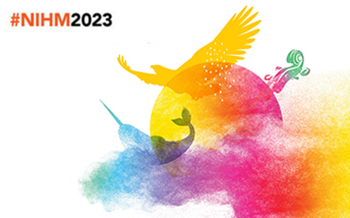
Engineers Canada continues to work toward increasing the representation of women and Indigenous Peoples in the profession. We work with provincial and territorial engineering regulators, engineers, employers, higher education institutions, and engineering students to promote equity, diversity, and inclusion in the profession.
With regulators, Engineers Canada offers the 4 Seasons of Reconciliation training to engineers and Engineers Canada staff in support of the Truth and Reconciliation Commission’s 94 Calls to Action. We represent Canada through the Canadian Indigenous Advisory Council (CIAC) as a voting member at the American Indian Science and Engineering Society (AISES) (CIAC/AISES). In addition, we organized the Decolonizing and Indigenizing Engineering Education Network Working Group. We also started a new research project, “Truth before Reconciliation”.
Through our work with EngiQueers Canada, Black Engineers of Canada, and the Canadian Coalition of Women in Engineering, Science, Trades and Technology, we advanced national research, partnered on events, and supported the growth and reach of these organizations, strengthening community and organizational supports for marginalized groups in engineering.
In 2024, we will implement our research strategy as well as the recommendations from the Indigenous Advisory Committee and will continue to build community capacity to ensure that equity-deserving voices are heard and championed with the engineering profession. We will also sign a Memorandum of Understanding with EngiQueers Canada.
Core purpose 10: Protecting official marks
Engineers Canada is the owner of an official mark for each of the following professional engineering designations:
- ENGINEER
- ENGINEERING
- CONSULTING ENGINEER
- PROFESSIONAL ENGINEER
- P.ENG.
- GÉNIE
- INGÉNIERIE
- INGÉNIEUR CONSEIL
- INGÉNIEUR
- ING.
In the fiscal year 2022-2023, our caseload included 23 new opposition cases, 9 settlements, 7 abandoned cases, and 12 expunged. Presently, we are managing about 39 ongoing proceedings.
In 2023, Engineers Canada consented to 38 requests for federal registration, enabling the use of official marks owned by Engineers Canada, in their corporate name.
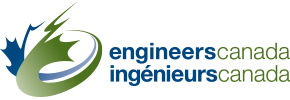
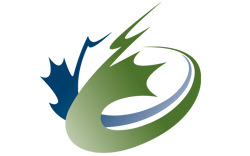
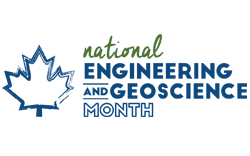
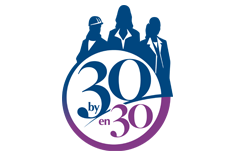
Financial statements
Download the 2023 summary financial statements.




